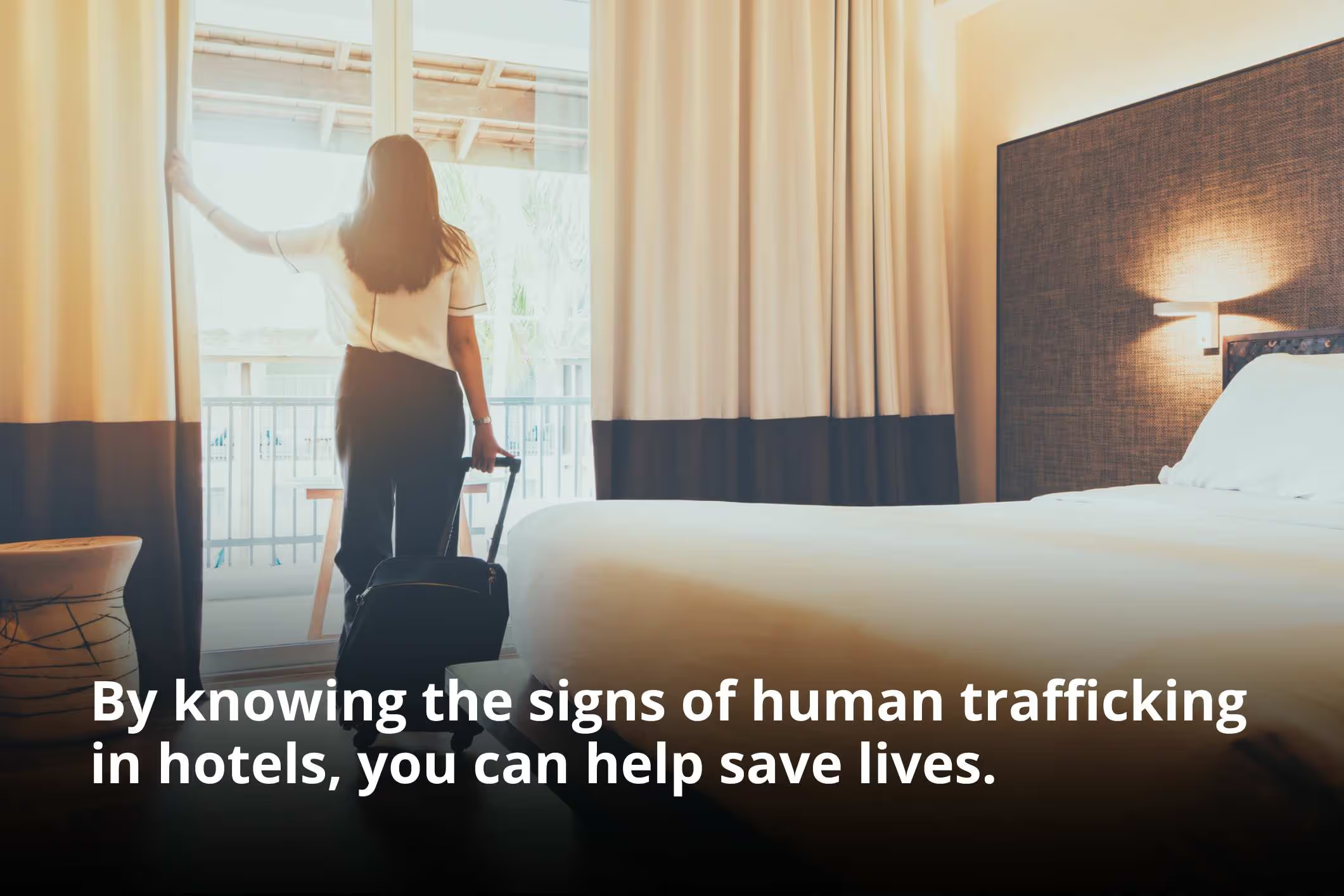Are Hotels Being Sued for Human Trafficking?
Human trafficking is a pervasive issue that often goes unnoticed, particularly within the hospitality industry. By educating yourself on the red flags and indicators of trafficking, you can play a crucial role in preventing exploitation and ensuring the safety of vulnerable individuals.
If you suspect human trafficking or have information that could help bring traffickers to justice, we urge you to take action. Report what you know to the authorities, and reach out to our legal team for assistance.

As human trafficking survivor injury lawyers, we at Thorsnes Bartolotta McGuire are deeply committed to advocating for those affected by human trafficking. We invite you to explore the resources and information provided here to understand the signs of human trafficking, the legal recourse available to victims, and the protections in place for whistleblowers.
Together, we can make a difference in combating human trafficking, protecting victims' rights, and holding perpetrators accountable. Contact us online or by phone at (619) 236-9363 for a free, completely confidential consultation. Your involvement and support are crucial in the fight against these heinous crimes. Let's work together to create a safer and more just society for everyone.
Are Hotels Involved in Human Trafficking?
Hotels can unfortunately become involved in human trafficking due to the nature of their business. Traffickers may exploit hotels as venues for their criminal activities because they offer anonymity, temporary lodging, and a transient population.
It's crucial to emphasize that hotels themselves may not be directly involved in trafficking, but individual managers or employees may be. Similarly, the hotel as a business entity can still be responsible for facilitating these crimes if proper safeguards and training are not in place.
Hotel owners and operators have a responsibility to avoid complicity in these dehumanizing practices.
Hotel staff members are often the first line of defense in identifying potential trafficking situations. Training programs that educate hotel employees on how to recognize the signs of trafficking — such as multiple rooms paid for in cash, or guests who are not in control of their identification or personal belongings — are essential in combating this crime.
Many hotel brands are actively engaged in anti-trafficking efforts by implementing policies, collaborating with law enforcement and advocacy organizations, and raising awareness among their staff and guests. However, that is not always the case when it comes to individual franchises.
Any hotel that is turning a blind eye to human trafficking must be held accountable. Any hospitality setting that knowingly profits off these criminal arrangements must be shut down. The individuals who participate in human trafficking schemes must be held fully accountable.
What Hotels Are Being Sued for Human Trafficking?
In recent years, several high-profile cases involving hotels being sued for human trafficking have garnered attention in the media and legal circles.
Here are a few examples of hotels that have faced lawsuits related to human trafficking:
- Wyndham Hotels & Resorts: A lawsuit was filed against Wyndham Hotels & Resorts by multiple women who alleged that they were victims of sex trafficking at hotels owned or operated by Wyndham. The lawsuit claimed that Wyndham failed to take appropriate measures to prevent and address human trafficking on its properties.
- Choice Hotels International: Choice Hotels International, along with a franchise owner, faced a lawsuit filed by a woman who claimed that she was trafficked at a hotel owned by the franchisee. The lawsuit alleged that Choice Hotels failed to implement adequate policies and training to prevent human trafficking.
- Hilton Worldwide: Hilton Worldwide has also been involved in legal disputes related to human trafficking. A lawsuit was filed against Hilton by a survivor of sex trafficking who claimed that she was trafficked at a Hilton hotel and that the company did not do enough to prevent such incidents.
These cases highlight the legal challenges faced by hotel chains regarding their responsibilities in combating human trafficking on their properties. It's important to recognize that these lawsuits do not necessarily imply guilt, but rather reflect the complex legal landscape surrounding human trafficking and corporate accountability.
Hotels named in human labor and sex trafficking lawsuits include Super 8, Motel 6, and Marriott. By speaking up, you can alert law enforcement to the issue, and directly and immediately save lives. You also help create the evidence needed so victims of human trafficking failures or facilitation can sue for the compensation they need to rebuild their lives.
Contact Thorsnes Bartolotta McGuire at (619) 236-9363 for legal matters related to hotel human trafficking.
How to Spot Human Trafficking in Hotels
Spotting human trafficking in hotels requires a keen eye for certain signs and behaviors. Here are some indicators that may suggest human trafficking is occurring in a hotel:
- Unusual Guest Behavior
- Guests who avoid eye contact or seem fearful.
- Individuals who appear disoriented, confused, or unable to speak freely.
- Guests who are not in control of their own identification or personal belongings.
- Payment and Booking Patterns
- Guests who pay in cash for multiple rooms or make frequent cash transactions.
- Bookings made on short notice or with vague or inconsistent information.
- Guests who are unable to provide a clear reason for their stay or appear to be avoiding hotel staff.
- Sexual Exploitation Red Flags
- Guests frequently receiving visitors, especially at odd hours.
- Multiple individuals entering and leaving a room, especially if they seem to be rotating.
- Ads or solicitations for commercial sex services posted online or in common areas.
If you see signs of physical abuse or injuries, such as bruises, cuts, or burns on anyone, speak up for them regardless of whether any other signs are present. A minor child or adult with abuse injuries is never normal.
Hotel staff should also receive training on how to recognize and respond to potential trafficking situations effectively and compassionately. For hotel guests, It's important to approach any suspicions carefully and discreetly.
If you believe human trafficking may be occurring, consider contacting local law enforcement or a human trafficking hotline for guidance and assistance. Going directly to hotel staff may not be safe — whoever you speak to may be one of the individuals complicit in letting the trafficking take place.
What Happens If Human Trafficking Is at Your Hotel?
If human trafficking is suspected or confirmed at a hotel, several actions should be taken to address the situation effectively:
- Immediate Response: Ensure the safety of potential victims and guests by contacting law enforcement immediately. Do not confront suspected traffickers directly, as this could escalate the situation and compromise safety.
- Document and Report: Document all relevant details, including dates, times, descriptions of individuals involved, and any actions taken. Report the incident to appropriate authorities, such as local law enforcement, human trafficking hotlines, or anti-trafficking organizations.
- Cooperate with Authorities: Provide law enforcement with all relevant information, such as guest records, security footage, and any observations or suspicions. Follow any instructions or protocols provided by law enforcement professionals.
It's crucial to take swift and decisive action when human trafficking is suspected or discovered on their premises. By working closely with law enforcement, providing support to victims, and implementing proactive measures, hotels can contribute to the prevention and mitigation of human trafficking in their communities.
Can individuals report suspected human trafficking anonymously?
Individuals can often report suspected human trafficking anonymously through various channels, such as hotlines, online tip forms, or contacting law enforcement agencies. Maintaining anonymity can be crucial for whistleblowers or individuals who fear retaliation.
Whistleblowers in human trafficking cases are often protected by laws that prohibit retaliation against individuals who report illegal activities. Protections may include confidentiality, immunity from certain legal actions, and the right to file complaints if retaliation occurs.
Contact Lawyers to Help Stop Hotel Human Trafficking
Recognizing and responding to human trafficking in hotels is a critical responsibility that requires vigilance, compassion, and swift action. As victim injury lawyers, we are dedicated to raising awareness, providing resources, and advocating for those affected by this egregious crime.
By understanding the signs of human trafficking outlined on this page and taking proactive steps to address suspicious situations, average individuals and hotel staff can play a pivotal role in preventing exploitation and ensuring the safety of vulnerable individuals. Cooperation with law enforcement, support for victims, and ongoing training and awareness efforts are essential components of an effective anti-trafficking strategy within the hospitality industry.
We encourage hotel owners, staff, and guests to remain vigilant, report any suspicions or concerns promptly, and work to combat human trafficking in all its forms. If you need direct advice or representation related to hotel human trafficking, contact Thorsnes Bartolotta McGuire at (619) 236-9363 right away. We have years of experience in helping survivors of negligence and exploitation recover.
Together, we can make a meaningful difference in protecting human rights and creating safer environments for everyone.








